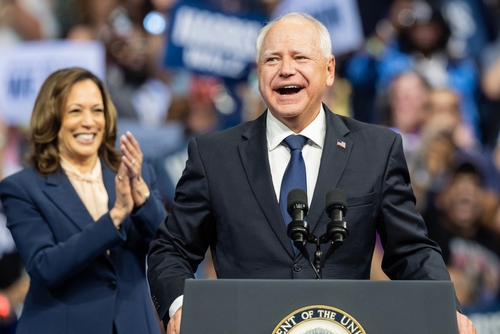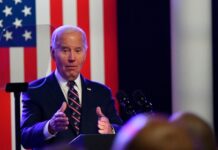
Minnesota Governor Tim Walz is embroiled in controversy following the revelation that a trip he took to China shortly after the 1989 Tiananmen Square Massacre was funded by the Chinese government. The trip, which took place during a period of intense international condemnation of China's actions, is raising serious ethical questions about the appropriateness of such a visit, particularly given the source of its funding.
At the time, Walz was a young soldier in the U.S. Army, participating in what has been described as an official exchange program. However, it has now come to light that this program was financed not by the U.S. government, as initially thought, but by the Chinese government itself. This new information has sparked outrage among critics who argue that accepting funding from Beijing, especially in the immediate aftermath of the brutal crackdown on pro-democracy protesters, was highly inappropriate and raises concerns about the message it sent to the Chinese Communist Party (CCP).
Well, well, well
The WorldTeach program out of Harvard that sent Tim Walz to China….was funded by the Rockefeller Foundation
note: from 1985 (when program started) to 1990– there is only ONE person in US newspaper search who went to China under the program:
Tim Walz pic.twitter.com/oY1mYGKDa7— Tim Walz Lies (@KihneSheila) August 15, 2024
The Tiananmen Square Massacre, which occurred in June 1989, saw the Chinese military violently suppress peaceful protests calling for democratic reforms. The images of tanks rolling through the streets and soldiers firing on unarmed civilians were broadcast around the world, leading to widespread condemnation and sanctions against China. In this context, Walz's trip to China, just weeks after these events, funded by the very government responsible for the massacre, is being seen by many as a significant misstep.
Critics argue that the trip, underwritten by Beijing, may have served as a propaganda tool for the Chinese government, allowing them to project an image of normalcy and international engagement despite the horrific events that had just taken place. By accepting funding from the CCP, they contend, Walz and the other participants unwittingly provided a degree of legitimacy to a regime that had just brutally suppressed its own citizens.
James Comer is on Fox News pushing the latest hot MAGA conspiracy theory — that China groomed Tim Walz to be a CCP sleeper agent pic.twitter.com/JBbAmm8RrB
— Aaron Rupar (@atrupar) August 20, 2024
Governor Walz has defended the trip, stating that it was part of a military exchange intended to foster mutual understanding and that at the time, he was unaware of the full implications of accepting funding from the Chinese government.
He has emphasized that his visit was not an endorsement of the CCP's actions, but rather an opportunity to engage with Chinese counterparts in a professional capacity. Despite this defense, the controversy surrounding the trip has continued to grow, with many questioning the ethics of participating in an exchange funded by an authoritarian regime.
This controversy has also sparked a broader debate about the U.S.'s approach to China in the wake of Tiananmen. While the U.S. government imposed sanctions and publicly condemned the massacre, the decision to allow military personnel to participate in a Beijing-funded exchange has raised questions about the consistency of U.S. foreign policy. Critics argue that such exchanges could have undermined the U.S.'s moral authority and sent mixed signals to the international community regarding its stance on human rights.
As Governor Walz prepares for his re-election campaign in 2026, this controversy could become a significant issue. His political opponents may use it to question his judgment and his commitment to upholding democratic values and human rights.










Tienanmen Timmy seems more at home in China than he does in the US so I vote we send him back there and take away his US citizenship!
Why is it that all the Democrat’s seem to have some type of ties to the CCP. It make you wonder if the CCP is using the Democrat party to take over AMERICA. They have always said they would do it without firing a shoot. Biden Kelly Walz and the list goes on and on.